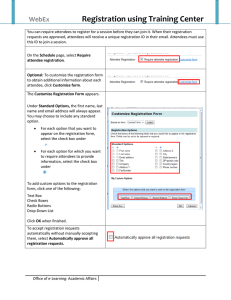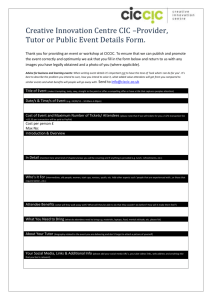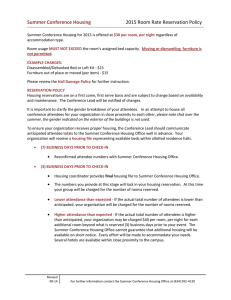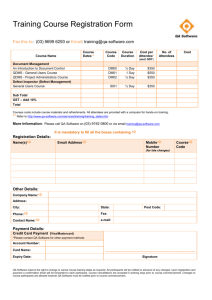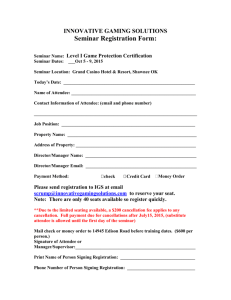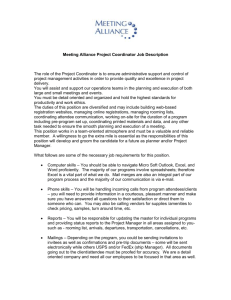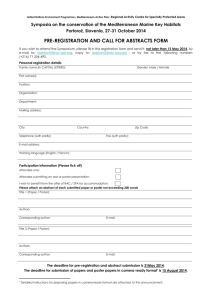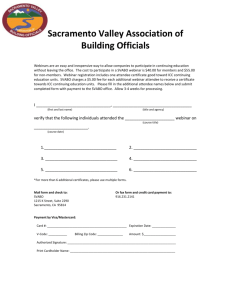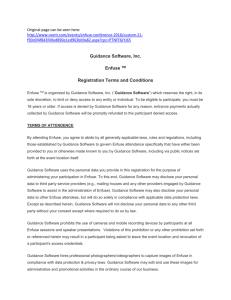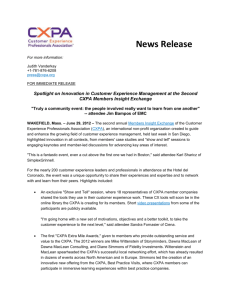Developing Learning Outcomes
advertisement
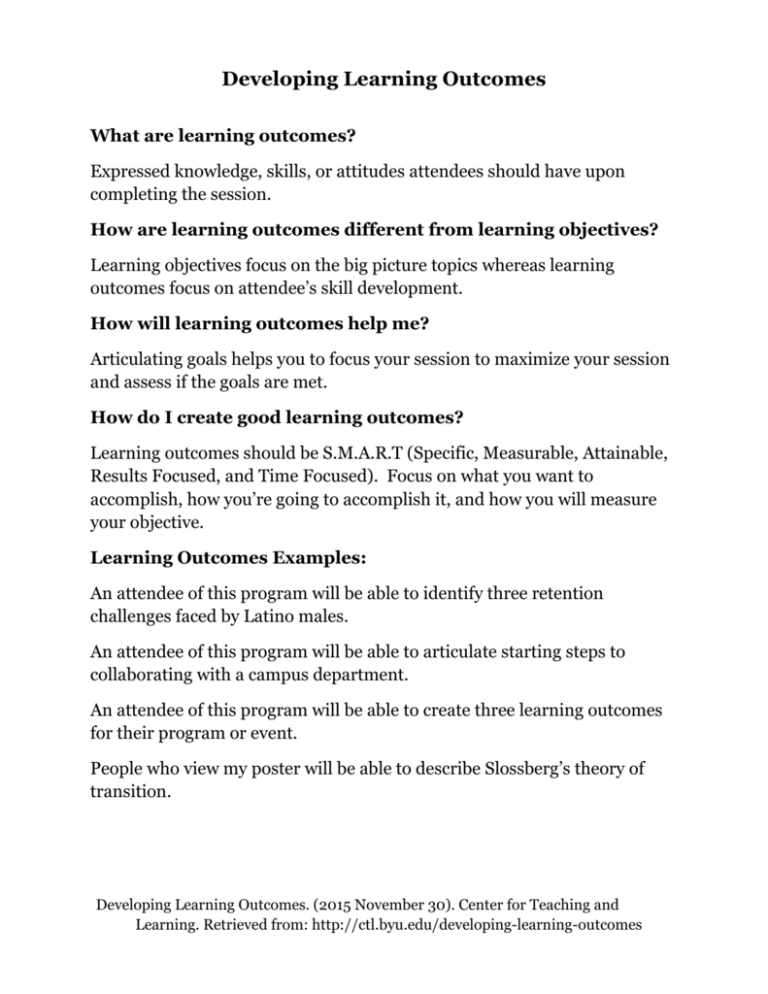
Developing Learning Outcomes What are learning outcomes? Expressed knowledge, skills, or attitudes attendees should have upon completing the session. How are learning outcomes different from learning objectives? Learning objectives focus on the big picture topics whereas learning outcomes focus on attendee’s skill development. How will learning outcomes help me? Articulating goals helps you to focus your session to maximize your session and assess if the goals are met. How do I create good learning outcomes? Learning outcomes should be S.M.A.R.T (Specific, Measurable, Attainable, Results Focused, and Time Focused). Focus on what you want to accomplish, how you’re going to accomplish it, and how you will measure your objective. Learning Outcomes Examples: An attendee of this program will be able to identify three retention challenges faced by Latino males. An attendee of this program will be able to articulate starting steps to collaborating with a campus department. An attendee of this program will be able to create three learning outcomes for their program or event. People who view my poster will be able to describe Slossberg’s theory of transition. Developing Learning Outcomes. (2015 November 30). Center for Teaching and Learning. Retrieved from: http://ctl.byu.edu/developing-learning-outcomes Aligning Assessment with Learning Outcomes Before you start • How do I want to implement my assessment? o For example: If you are presenting a poster, you may want to use informal verbal questions to evaluate if your research is clear and well developed. • What do I want attendees to know how to do when they leave this session? • What kinds of questions will reveal whether attendees achieved learning objectives I identified? Use Bloom’s Taxonomy to Create questions: • • • • • • Knowledge: Arrange, identify, memorize, recall, reproduce Comprehension: Explain, convert, express, rewrite Application: Use, apply, change, practice, show Analysis: Analyze, change, employ Synthesis: Create, categorize, design, prepare Evaluation: Judge, assess, attach, defend Assessment examples • Are you able to identify the three steps to start a partnership with a department at your university? • Are you able to identify the three retention challenges for Latino males? Review assessment • Is each question clear and unambiguous? • Does each question test the desired level of knowledge, skill, or attitude? Developing Learning Outcomes. (2015 November 30). Center for Teaching and Learning. Retrieved from: http://ctl.byu.edu/developing-learning-outcomes
